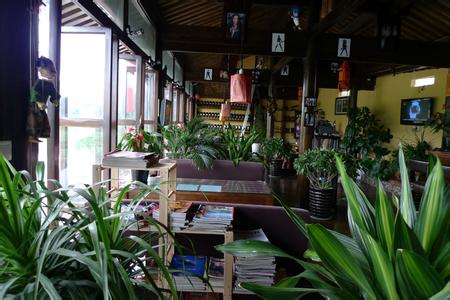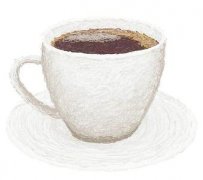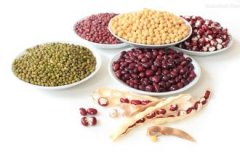Elegant floral aroma, acidity, meticulous and soft Puerto Rican boutique coffee grinding degree treatment method of baking degree

Product description: The history of coffee in the Caribbean Sea is closely related to the Spanish name transfer. Coffee in various places was not so important in the 18th century. The most important work was to grow sugar crops in fertile valley land. In the early 19th century (1800), the residents of Coscia Island in the French Mediterranean migrated to Puerto Rico. Because the valley land had been occupied by Spanish immigrants, they chose to settle in the southwest mountains of the island. Most of them were near Yuco City. Because of their hard work and determination, coffee cultivation brought them good returns. They dominated the island's coffee industry in the 1860s. At that time, Puerto Rico's coffee bean production was the sixth highest in the world. Those Corsican immigrants planted coffee trees in the highlands. The fruit was regarded as selected.(Yauco Selecto) The origin of coffee beans also mainly dates back to this period. However, two severe hurricanes hit Puerto Rico in 1898. These two hurricanes destroyed the local coffee industry. Farmers had to wait two years for the crop to return to normal. During this period, the United States was very interested in sugar production in Puerto Rico. In addition, European countries no longer regarded Puerto Rico coffee beans as crops produced in their colonies and imposed tariffs. It hit Puerto Rico coffee hard. Caribbean Sea is a warm, romantic and mysterious sea area. Many good coffees also surround this ring sea area. Jamaica Blue Mountain, Dominican Republic, Cuba Crystal Mountain, Puerto Rico Yuco, etc. These are the most famous rare and expensive coffees in the world. These island beans make people have a light milk fragrance and elegant flower fragrance. The acid quality is delicate and soft. Although it is still difficult to avoid the problem that coffee is easy to lose moisture due to the sultry island climate, the overall texture is the first-class beans in coffee. Puerto Rico coffee is not easy to buy in the market mainly because of the low production and export to Europe, coupled with the adverse effects of severe weather and hurricane damage on coffee crops, there will be no coffee to buy all year.
Puerto Rico, located in the eastern part of the Greater Antilles in the Caribbean Sea, includes the island of Puerto Rico and the islands of Vieques and Cullefra. It is a beautiful island. It is bordered by the Atlantic Ocean to the north, the Caribbean Sea to the south, the United States and The British Virgin Islands to the east, and the Dominican Republic across the Mona Strait to the west. Puerto Rico covers an area of 13790 square kilometers, with mountains and hills accounting for 3/4 of the island's area. The Central Mountain Range runs from east to west, and the terrain extends from the center to the periphery, from high to low, and the coast is plain. The highest peak, Punta Mountain, is 1338 meters above sea level. It has a tropical rain forest climate with sufficient rainfall. The average temperature in January is 24℃ and the average temperature in July is 27℃. It is vulnerable to hurricanes, with an average annual temperature of 28 ° C. These climatic conditions are very suitable for the high-quality growth of coffee trees.
Island Coffee-Puerto Rico
In Spanish, Puerto Rico means "Port of Wealth." Coffee in Puerto Rico dates back to 1736, when early Spanish immigrants brought coffee seedlings. Since the main cash crop was sugar cane in the 18th century, it has not been valued. In the early 19th century, French immigrants began to migrate from the Mediterranean island of Corsica to Puerto Rico because of European political factors. Crowded by the Spanish, many French settled in Yauco, southwest of Puerto Rico. Yaoko's geographical environment is more hilly, so the French decided to grow coffee. After half a century of hard work, the quality has been recognized by the market and has established the position of Yauco Selecto coffee in the future.
In the 1960s, coffee produced in Puerto Rico's Yaoko region won the reputation of premium coffee throughout Europe. At that time, the emperors and queens of various countries regarded it as the best coffee, and many kings and queens of various countries and European popes only recognized Yao Ke coffee when choosing coffee. And for the Holy See designated to drink the royal coffee. Island Coffee-Puerto Rico
Puerto Rico's coffee beans are carefully grown, pure, aromatic, and granular. The best coffee is Yauco Selecto, which means "selected." Grown only on three farms in the south-west of the island, San Pedro, Caracolillo and La Juanita, Yocote Coffee has a strong aroma and a long aftertaste, making it a true premium coffee. The hilly areas southwest of Puerto Rico have mild climates, long maturity periods (October to February), and good clay soils. The people here have been using an eco-friendly, intensive cultivation method, picking only fully ripe beans and then rinsing them in a roller for 48 hours. Yocote Select coffee beans are kept in sheepskin shells until they are marketed and removed when ordered to ensure optimum freshness. U.S. government officials, such as the FDA and USEA, are present at the time of the transaction to monitor compliance with federal regulations. There are also professional reviewers who randomly sample one bag from every 50 bags of coffee and use international gauges to evaluate the quality of the coffee beans, all to ensure that the real Yocote Coffee is a good deal.
Island Coffee-Puerto Rico
And Jaime Fortuno, president of Escogido Yauco agency, quietly watches every year, even in the tiniest detail. Fortuno is an investment banker who graduated from Harvard Business School. He was determined to seize every opportunity to open up a market for premium coffee in Puerto Rico. He expects a maximum annual production of 3000 bags of 45 kilograms each, which is less than 1 percent of the island's total coffee production.
That's why Puerto Rico and Puerto Rico Yuco Selecto are different. Yuco Selecto is the estate bean, a joint brand of San Pedro, Caracolillo and La Juanita in Puerto Rico.
Island Coffee-Puerto Rico Puerto Rico This new crop coffee is a mild, supple, well-balanced island bean. The dry aroma has an attractive single malt sweetness. It is extremely sweet when sipped in the cup. The medium roasted cream and oily texture are often suitable for Puerto Rico island beans.
Important Notice :
前街咖啡 FrontStreet Coffee has moved to new addredd:
FrontStreet Coffee Address: 315,Donghua East Road,GuangZhou
Tel:020 38364473
- Prev

A brief introduction to the Market Price of Fine Coffee varieties in Puerto Rico with full grains
And Jaime Fortuno, president of the agency bank Escogido Yauco in Eskki, pays silent attention to all this work every year, even the smallest details. Fortuno is an investment banker who graduated from Harvard Business School. He was determined to seize every opportunity to open up a top coffee market in Puerto Rico.
- Next

Fruity Puerto Rico Fine Coffee Growing Location Climate Altitude Profile
When it came time to pick the beans, people walked back and forth between the trees, picking only the fully ripe beans, which were then washed in a roller for 48 hours. Yocote Select beans are kept in their shells until they are shipped, and the skins are not removed until the order is shipped to ensure optimum freshness. At the time of delivery, the relevant U.S. government workers
Related
- Detailed explanation of Jadeite planting Land in Panamanian Jadeite Manor introduction to the grading system of Jadeite competitive bidding, Red bid, Green bid and Rose Summer
- Story of Coffee planting in Brenka region of Costa Rica Stonehenge Manor anaerobic heavy honey treatment of flavor mouth
- What's on the barrel of Blue Mountain Coffee beans?
- Can American coffee also pull flowers? How to use hot American style to pull out a good-looking pattern?
- Can you make a cold extract with coffee beans? What is the right proportion for cold-extracted coffee formula?
- Indonesian PWN Gold Mandrine Coffee Origin Features Flavor How to Chong? Mandolin coffee is American.
- A brief introduction to the flavor characteristics of Brazilian yellow bourbon coffee beans
- What is the effect of different water quality on the flavor of cold-extracted coffee? What kind of water is best for brewing coffee?
- Why do you think of Rose Summer whenever you mention Panamanian coffee?
- Introduction to the characteristics of authentic blue mountain coffee bean producing areas? What is the CIB Coffee Authority in Jamaica?

